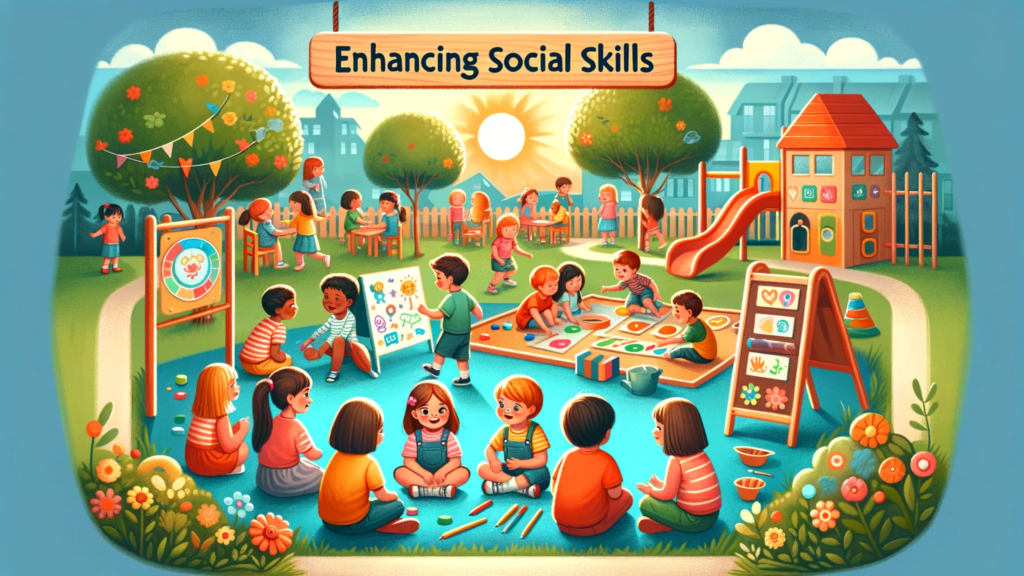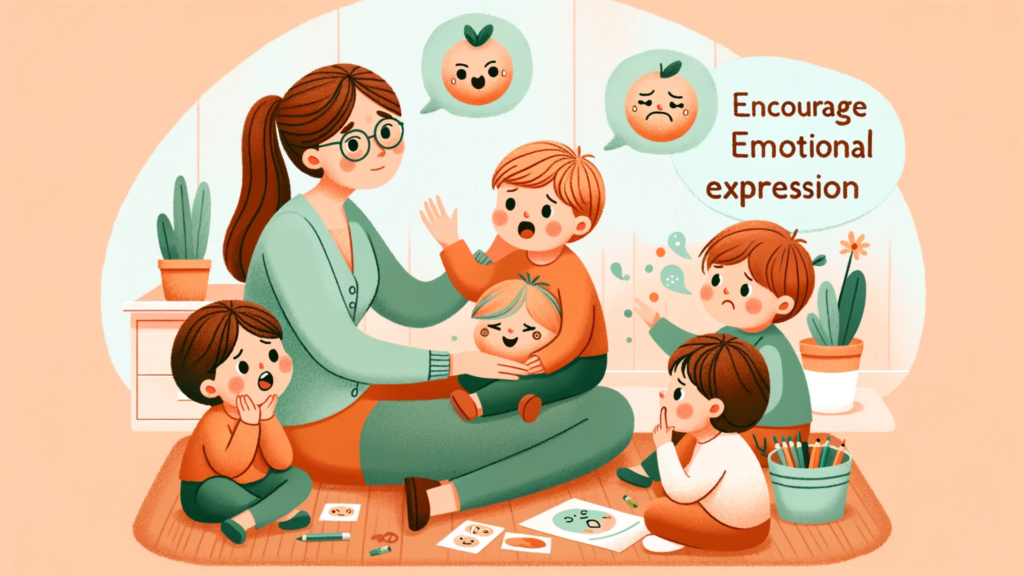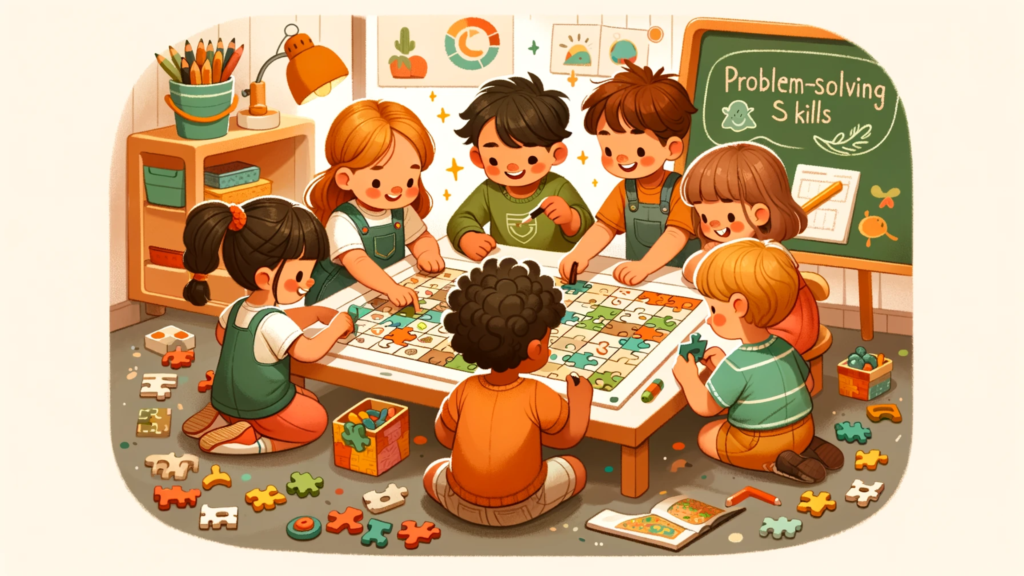Preschool represents a pivotal juncture in a child’s development, where they begin to acquire fundamental life skills that will significantly influence their future. Among these skills, emotional intelligence in preschool-aged children stands out as an essential facet. In this article, we delve into the significance of nurturing emotional intelligence in young children and how it can bring about positive transformations in their lives.
Emotional Intelligence In Preschool-Aged Children
Emotional intelligence, often referred to as EI or EQ, encompasses the ability to recognise, comprehend, and manage one’s own emotions, as well as those of others. It involves elements such as empathy, self-awareness, self-regulation, and effective communication. Cultivating emotional intelligence during the preschool years can lay the groundwork for a child’s social and emotional well-being throughout their lifetime.
Developing emotional intelligence in preschool-aged children lays the foundation for future success. These formative years represent a period when children are most receptive to learning and can effortlessly absorb emotional cues from their surroundings. By nurturing emotional intelligence at an early stage, we provide them with invaluable tools to navigate relationships and challenges as they mature.
Enhancing Social Skills

Enhancing social skills in preschool-aged children is a pivotal aspect of their early development. During the preschool years, children are beginning to step beyond the confines of their immediate family and engage with a broader social world. This stage marks a critical point where they start to form friendships, learn cooperation, and develop the ability to interact with their peers and adults. By focusing on enhancing their social skills, we empower children to navigate social situations effectively and lay the groundwork for healthy relationships throughout their lives.
Boosting Confidence
Boosting a child’s confidence is a fundamental aspect of nurturing emotional intelligence during the preschool years. Emotional intelligence encompasses not only recognizing and managing emotions but also fostering a sense of self-worth and empowerment. When children are equipped with the tools to express their feelings and needs effectively, they begin to feel more in control of their emotional responses. This empowerment leads to a profound boost in self-esteem and a greater overall sense of self-confidence.
Practical Ways to Develop Emotional Intelligence
Emotional intelligence in preschool-aged children can be effectively nurtured through various practical approaches that focus on fostering self-awareness, empathy, and problem-solving skills. Here, we delve into these strategies and subheadings in detail:
Encourage Emotional Expression
Creating a safe and nurturing environment is paramount when aiming to develop emotional intelligence in young children. This environment should enable children to feel comfortable expressing their emotions without fear of judgment or criticism. Encouraging children to openly discuss how they feel and validating their emotions is a crucial step in this process.

By providing a space where they can freely articulate their emotions, caregivers and educators can help children learn to identify and manage their feelings effectively. When children are assured that their emotions are acknowledged and respected, they develop a healthy emotional vocabulary and become more adept at recognising and handling various emotional states.
Teach Empathy
Empathy is a fundamental component of emotional intelligence. Teaching children to understand and consider the feelings of others is essential for their social and emotional development. To promote empathy, caregivers and educators can employ various techniques, such as reading books or watching movies that showcase characters experiencing different emotions.
Additionally, encouraging discussions about how characters in these stories might be feeling and why they react in certain ways can stimulate critical thinking and empathy development. Engaging in such conversations allows children to explore perspectives beyond their own and enhances their ability to relate to others on a deeper emotional level.
Problem-Solving Skills
Developing problem-solving skills is another crucial aspect of nurturing emotional intelligence in preschool-aged children. Involving children in age-appropriate decision-making processes is an effective way to encourage them to think critically and find constructive solutions to conflicts and challenges. By engaging children in these processes, caregivers and educators empower them to take responsibility for their actions and choices.

When children actively participate in problem-solving, they learn to assess situations, consider alternative perspectives, and collaborate with others to reach solutions. This not only enhances their emotional intelligence but also equips them with valuable life skills. As children become more proficient in resolving conflicts and making decisions, their confidence grows, contributing to their overall emotional well-being and resilience.
Emotion-Focused Play
Play is a natural and enjoyable way for children to explore and express their emotions. Engaging in play that encourages emotional expression can be highly beneficial. Caregivers and educators can create play scenarios where children can act out various emotions, allowing them to practice recognising and managing their feelings in a fun and safe manner.
Through emotion-focused play, children learn to identify different emotional states, both in themselves and in others. They can experiment with appropriate ways to express their emotions and develop strategies for coping with challenging feelings. This type of play not only enhances emotional intelligence but also helps children build emotional resilience, enabling them to navigate the complexities of emotions
Conclusion
In summary, fostering emotional intelligence in preschool-aged children represents a crucial step towards paving the way for a prosperous and satisfying life. By nurturing self-awareness, empathy, and effective communication skills, we equip them with the necessary tools to navigate the intricacies of human emotions and relationships. Investing in their emotional intelligence during these formative years is a commitment that is bound to yield lifelong benefits. Let us make it our mission to guide our preschoolers towards becoming emotionally intelligent individuals who can flourish in all aspects of life.
Start A New Chapter In Your Child’s Education
At Kids Learning Academy, we’re dedicated to fostering the holistic development of your child. Our carefully designed programs are crafted to ignite their curiosity, enhance their cognitive skills, and nurture their creativity. We believe in providing a safe and stimulating environment where children can thrive. Join us in this exciting journey of growth and learning. Enroll your child today to give them the best start in life!